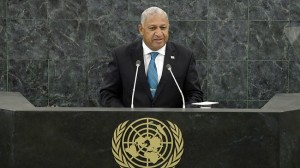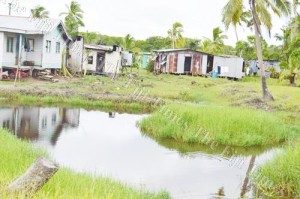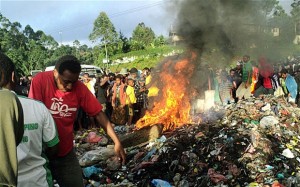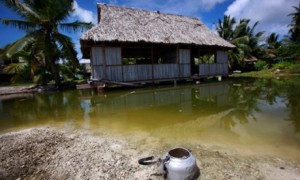by Max Bartels
Impunity Watch Reporter, Oceania
Savu, Fiji
Fiji has been under the control of a military dictator since Rear Admiral Bainimarma seized power during a military coup in 2006. The island nation of Fiji has had a troubled political past with four military coups in the past decade. The international community has since put pressure on Fiji in order to push it toward democracy. Fiji is heavily reliant on tourism as a source of income and a stimulus for their economy. Both Australia and New Zealand introduced travel bans on Fiji in order to motivate political change in the country. The United Kingdom suspended Fiji’s Commonwealth Status, denying it the benefits of association with Great Britain.

(Photo curtesy of news.com.au)
In March Bainimarma announced that he would be stepping down as dictator and stating that he will run for re-election as a civilian and a member of Fiji’s “First Party”, which he now supports. Bainimarma claims that his coup in 2006 was necessary to ensure the restoration of democracy and to purge the rampant corruption that plagued the previous Fijian government. He says that he now looks to implement his plan for a better Fiji by holding open elections. In the wake of these statements the international community has reacted positively, praising Bainamarma for his decision. The government’s of Australia and New Zealand have lifted the travel bans on the island nation. The United Kingdom has also said they will reinstate commonwealth status if elections are successful.
However, there are still many issues with the upcoming elections, while Bainimarma announces they will be free and democratic there are some troubling events that have happened behind the scenes. Fiji has a history of restraining human rights and free speech; after recent constitutional change the military government heavily restricted these freedoms. There were incidents last year where protesters protesting the new constitution were arrested for failure to have a permit. There are many other stories of the regime arresting human rights defenders, journalists and trade union leaders. Critics in the press are skeptical of the upcoming elections and say that Bainimarma’s actions have no real teeth and will not effect change.
Despite the many instances of limiting the freedoms of the Fijian people, Bainimarma is extremely popular amongst the voters. He has implemented policies such as free education, free transportation for children and price controls on staple foods, all of which have made the military leader popular amongst the lower socioeconomic classes. In addition to these policies he has greatly improved the infrastructure of the islands making him popular amongst the rural population as well. It remains to be seen whether the elections will affect change in Fiji but Bainimarma has stated his intentions, his campaign is popular and the election in September will show whether he is sincere or not.
For more information, please see:
Human Rights Watch — Rights Abuses Continue in Fiji — 9 April 2014
ABC Australia News Network — Fiji Welcomes Lifting of Travel Bans by Australia, NZ — March 31 2014
The Telegraph — Fiji’s Military Dictator Swaps Uniform for Suit — 6 March 2014



